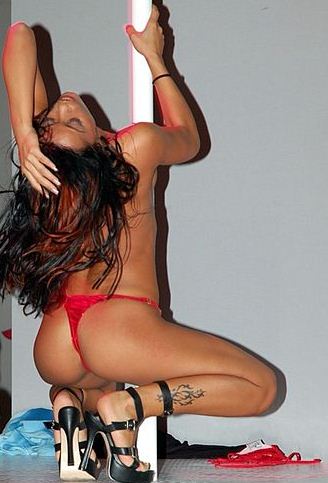In another life, Roselyn Keo might have liked to work on Wall Street. “I’m smart enough, I know,” she told me, sitting in the immaculate white kitchen of her suburban home. She’s organized, she pointed out, and good at math, and there is little doubt she has an entrepreneurial streak. As a kid, she said, she used to buy candy in bulk and sell it at school for a profit, which I later remembered is the same story hedge-fund billionaire John Paulson tells about himself. But John Paulson was born into his body and Roselyn Keo was born into hers, which happens to be a rather more overtly sexy shape, with the sort of waist-to-hip ratio scientists have concluded affects men like a drug. It’s the kind of body that, as they used to say, could get a girl in trouble, though getting into trouble was something Rosie was plenty capable of all by herself.
Growing up here in Rockland County, Rosie, as she likes to be called, was a wild child. She ran with a tough crowd, had bad boyfriends, got into fights at school. Now 31, she has since made some inquiries into the field of psychology and concluded that this behavior was likely the result of her parents’ having taken off to Atlantic City when she was young and leaving her and her brother behind with elderly grandparents.
According to Rosie, her parents were Cambodian refugees who came to America hoping for a better life and “got caught up with the, you know, material crap, and the nice cars, and the nightlife,” she said. “And just somewhere, they went wrong.”
(I say “according to Rosie” because her family did not respond to interview requests, and because Rosie is an admitted liar with multiple pending felony charges. Still, she is occasionally prone to offering up indisputable truths. “American culture is a little fucked up,” she mused. “You know?”)
Anyway, according to Rosie, this was what eventually led to her going wrong — to her dropping out of school and, at 17, taking a job at the New City Diner, a greasy spoon off the main drag in Nanuet, in order to supplement her grandparents’ meager income. Late at night and early in the morning, she poured coffee and took orders from customers, many of whom were employees from Lace, the nearby gentlemen’s club. One night, one of Lace’s managers dropped a $20 tip on a $20 check, gave her uniform a long up-and-down look, and suggested she come by if she was interested in making more money.
This was back in the early aughts, when the industry was enjoying a cultural moment. Improbably, the values of third-wave feminism had aligned with those of Howard Stern, ushering in an era in which taking off one’s clothes in front of an audience was no longer degrading but sexually liberating and financially empowering. New York City clubs like Scores, with their bright lights and bottle service, had successfully marketed themselves as a naughty-but-harmless night out for men and women, and celebrities and athletes were all too happy to be photographed with dancers who looked as wholesome as topless cheerleaders.






